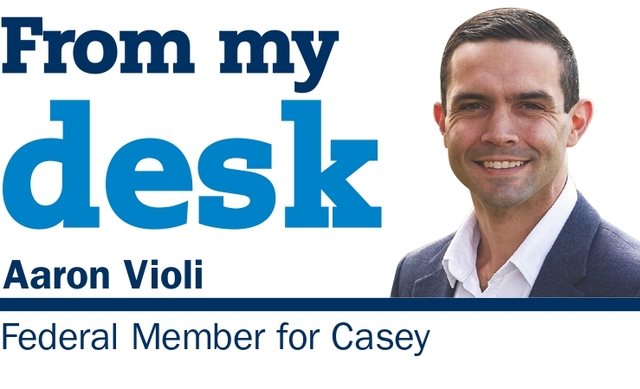With Christmas now less than two weeks away, one of the greatest stresses leading up to it is the pressure of finding the right gift for a loved one, a friend, workmate or neighbour.
And as we move closer and closer to the day our centres and shops fill up with frenzied and distressed shoppers who often end up with inappropriate, thoughtless gifts that have not taken into account the needs of the recipient.
Although gift giving has now been commodified, commercialized and stripped of meaning the tradition of exchanging gifts during Christmas has deep historical roots and has evolved over time.
In Ancient Rome, the festival of Saturnalia, celebrated from December 17 to 23, involved merrymaking and the exchange of simple gifts like candles and fruits.
This practice influenced early Christian customs, aligning with the biblical story of the Magi presenting gifts to the infant Jesus.
Nor is gift giving confined to Christian celebration.
Many other religious and spiritual traditions also explore the deeper meaning of giving, linking this practice to selflessness and connection to the divine.
There is also a rich philosophical tradition around giving and gifting.
It can be seen as an ethical duty, an expression of empathy, or a means of maintaining social harmony.
Some like Kant have explored whether giving is morally good or motivated by self-interest.
According to Kant moral duty was important and the act of giving should not be influenced by self-interest or a desire for recognition.
From a Utilitarian perspective, the value of giving is judged based on its consequences.
If the gift leads to greater overall happiness or well-being for the recipient and others, it is considered good.
Kahlil Gibran, best known for his work The Prophet, wrote beautifully on the subject of giving.
In To Give, Gibran suggests that true giving requires selflessness and that the giver should not expect anything in return.
Excerpt from the poem:
You give but little when you give of your possessions.
It is when you give of yourself that you truly give.
For what is your friend that you should seek him with hours to fill your need?
But he who is your friend, who is your lover and your brother.
In the Victorian era, Christmas gift-giving became more elaborate, with an emphasis on generosity and familial bonds.
This period saw the commercialization of Christmas, transforming it into the significant economic event it has now become.
Today, particularly among children expectations of receiving expensive gifts has been fuelled by social media advertising.
It may seem difficult to find meaningful gifts when you’re financially strained but it’s important to focus on the intention behind the gift rather than its cost.
The best gifts are those that make others feel loved, appreciated and seen.
And as Maya Angelou once said: ‘I’ve learned that people will forget what you said, people will forget what you did, but people will never forget how you made them feel.’
G.K. Chesterton’s A Christmas Poem touches on the deeper spiritual implications of giving.
Chesterton explores how giving brings joy and fulfilment.
Excerpt from the poem:
For it is better to give than to receive,
Better to love than to be loved,
To seek out a gift is a joy,
To give is a joy that will never end.
Contemporary discussions on Christmas gift-giving explore its psychological and economic aspects.
Psychologists highlight the social value of gift-giving, emphasizing its role in strengthening relationships and expressing care.
Modern trends also reflect a shift towards minimalism and sustainability in gift-giving.
Many people now prefer giving experiences over physical items, focusing on meaningful and environmentally conscious gifts.
Though A A Milne’s voice feels playful and reflective, his take on giving emphasizes simplicity and kindness.
His Winnie-the-Pooh stories and his poems highlight gifts as expressions of affection, joy, and thoughtfulness.
And though the season doesn’t align the sentiments reflect the true spirit of contemporary Christmas giving.
Gifts are not things, but moments;
A smile, a laugh, a shared time—
Simple things that remind us,
How hearts can connect in wintertime.
One of the most famous stories about giving, Charles Dickens’s A Christmas Carol follows the transformation of Ebenezer Scrooge, a miserly old man, into a generous and compassionate person after he is visited by the ghosts of Christmas Past, Present, and Yet to Come.
Scrooge’s journey illustrates the importance of giving, not just in material terms, but through kindness, love, and empathy for others.
While in O’Henry’s short story, The Magi, a young couple, Jim and Della, sacrifice their most prized possessions to buy each other Christmas gifts, showing the selflessness and depth of their love.
As Robert Louis Stevenson wrote: You can give without loving, but you can never love without giving.
A recent trend has been to gift experiences. Better than useless gifts but can still be problematic.
You can’ t give someone a single theatre or concert ticket or any other experience that would be more enjoyable when shared with a friend or a loved one and that may become too costly. But you can create inexpensive experiences with imagination and minimal expense.
As Emily Dickinson reminds us:
We give as a gift the moments, the time, the memory—
And these are the stars of our own hand.”
Ethel Turner is an Australian author and poet, best known for her work Seven Little Australians.
In “The Christmas Box”, Turner touches on themes of giving and the joy of receiving gifts, exploring the magic of Christmas through the eyes of a child and the beauty of giving simple, heartfelt gifts.
Excerpt:
A little box, a little gift,
Wrapped in a ribbon bright,
A tiny thing, but full of love,
To bring joy on Christmas night.
The poem speaks to the innocence and joy of giving, regardless of the material value of the gift.
And this simple acknowledgment that gifts don’t have to be extravagant but should come from the heart remains a universal message about the spirit of giving.







